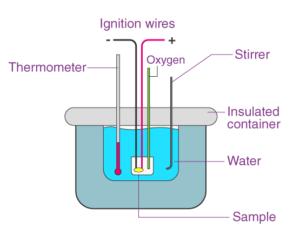by Melissa
Share
by Melissa
Share
In a world where the latest diet trends often reduce eating to a game of numbers, the concept of counting calories has taken center stage. It’s a method that promises simplicity in the complex pursuit of health and weight management. But here’s the twist: this approach might be doing more harm than good by oversimplifying the nuanced reality of human nutrition. Let’s unpack why the calorie counting paradigm falls short and explore a more enlightened path to understanding our dietary needs.
The Misconception of Counting Calories in Food
The prevailing belief that we can precisely count the calories in food overlooks the complex reality of how our bodies interact with what we eat. This assumption simplifies an intricate process into a misleadingly straightforward equation. Nutrition, in its essence, transcends the mere tallying of calories, venturing into the realm of metabolic processes, nutrient absorption, and the body’s unique responses to various foods.
In truth, the caloric content listed on food labels or calculated for homemade meals offers only a rough estimate of the energy our bodies might derive from them. The process of digestion and metabolism varies greatly among individuals, influenced by factors such as gut health, metabolic efficiency, and even the physical and chemical composition of the food itself. These variables can significantly alter the amount of usable energy we actually obtain from our meals, challenging the notion that calories can be counted with precision when it comes to intake.
Acknowledging this complexity encourages a shift in focus from counting calories to understanding and appreciating the nutritional value and quality of our food. It invites us to consider how different nutrients support our health, how our bodies may respond uniquely to the same foods, and how a balanced, nutrient-dense diet can better serve our individual health goals and needs than a diet obsessed with caloric values.
The Intricacies of Calorie Measurement

The foundation of calorie counting is built on the idea that the caloric content of our food can be precisely quantified as it enters our bodies.
This belief stems from methods like the calorimeter, a device designed to measure the energy content of food by burning it. While this provides a controlled measure of energy release in a lab, it doesn’t fully account for the complex metabolic processes our bodies undergo when digesting, absorbing, and metabolizing nutrients. Our bodies aren’t simple engines; they’re complex ecosystems that handle nutrients in diverse and intricate ways, influenced by factors far beyond the scope of a laboratory burn.
The Reality of Counting Calories
Counting calories presumes that all the energy in our food is directly accessible and usable by our bodies, a notion that overlooks the complexity of human digestion and metabolism. The actual usable energy we obtain from food is affected by the thermic effect of food, individual gut microbiota, food preparation methods, and the bioavailability of nutrients. This makes the calorie figures on food labels and nutritional databases estimates at best, rather than exact figures of the energy our bodies will utilize.
Moreover, the emphasis on calorie counting can lead us to prioritize low-calorie but nutritionally poor foods over nutrient-rich options, potentially leading to dietary imbalances. It can also encourage disordered eating patterns, increase psychological stress related to food, and cause us to ignore our body’s natural hunger and satiety signals.
The Process of Metabolizing Food

When we consume food, it embarks on a metabolic journey, transformed by a series of biochemical reactions into energy that fuels our bodies. This process is remarkably individualized, influenced by our metabolic rate, which can be akin to a car’s fuel efficiency. Some of us have “fuel-efficient” metabolisms that require fewer calories to maintain basic functions, while others may have a “faster” metabolic rate. Understanding and embracing our unique metabolic needs is crucial for making informed dietary choices that support our individual health goals.
Moving Beyond Calorie Counting
Acknowledging the limitations in precisely quantifying the caloric intake of our diets necessitates a reevaluation of our nutritional focus. It’s more practical and insightful to assess the energy we expend through physical activities and our basic metabolic needs. However, the essence of good nutrition extends far beyond the simple calculus of calories. The emphasis should be on the quality of the food we nourish our bodies with, the diversity of nutrients we derive from our meals, and the manner in which these choices integrate into our daily lives.
The Importance of Quality in Our Diets
The significance of food quality cannot be overstated. Consuming a diet rich in essential nutrients supports overall health, facilitates optimal bodily function, and enhances well-being. In contrast, a lack of adequate nutrition can lead to deficiencies, impact physical and mental health, and diminish our quality of life. Thus, shifting our attention from counting calories to concentrating on nutrient-rich, quality foods is crucial for sustaining a balanced and healthy lifestyle.
For individuals with a slow metabolism, it’s crucial to maximize the nutritional value of each calorie consumed to ensure the body receives the energy it needs to function optimally. Consuming foods low in essential nutrients but high in empty calories can lead to energy imbalances, leaving you feeling tired, lethargic, and unable to perform daily activities effectively.

Embracing a Comprehensive Approach to Nutrition: Beyond One-Size-Fits-All
Delving into the world of nutrition reveals the need for a comprehensive and enlightened approach, one that emphasizes the importance of nutrient-rich foods, delves into the subtleties of our metabolic processes, and honors the uniqueness of each individual. This perspective invites us to attune to our bodies’ signals, relish a variety of nutritious foods, and develop a positive and flexible approach to eating that goes beyond the confines of calorie tracking. It acknowledges that nutrition is not, and can never be, reduced to a simple energy equation or a one-size-fits-all model, as the calorie-centric paradigm would have us believe.
By adopting this refined outlook, we equip ourselves to select foods that truly feed and rejuvenate us, nurturing a state of wellness that resonates with our distinct physiological requirements. This approach dismisses the oversimplified notion of calories in versus calories out, understanding that individual metabolic rates, nutrient absorption, and the body’s reaction to different types of foods vary significantly from person to person.
Let’s proceed with a heightened appreciation for the intricate relationship among food, metabolism, and well-being, forging a path to authentic nutritional insight and contentment. This journey towards nutritional wisdom embraces the complexity of our bodies and the diversity of our dietary needs, promoting a tailored approach to health that stands in stark contrast to the one-size-fits-all, calorie-centric model.
STAY IN THE LOOP
